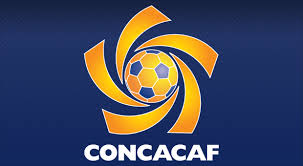By Paul Nicholson
October 21 – CONCACAF, rocked by the arrest of its president Jeffrey Webb and Costa Rican president Eduardo Li in May in Zurich over allegations of requesting and accepting bribes to secure marketing sales contracts, has released a new code of conduct for its partners.
The Partner Code of Conduct “sets stricter standards and protocols for any party that provides a product or service to CONCACAF or to whom the Confederation makes payments or provides services”.
With South American confederation CONMEBOL having terminated its contracts with for the sale of the Copa America marketing rights with Datisa yesterday (see http://www.insideworldfootball.com/world-football/south-america/18131-conmebol-kill-datisa-deal-but-promise-the-2016-copa-america-will-go-on) the way now looks clear for CONCACAF and CONMEBOL to jointly move forward with the sale of Copa America 2016 rights, and presumably with a new sales agency.
Launched with a fanfare in 2014, the Copa America Centenario was to be held outside South America and in the US for the first time, and was to incorporate five CONCACAF nations. But with the US Department of Justice purge of both confederations and their marketing partners the tournament looked to be in doubt as the US seemed reluctant to return to the concept.
That reluctance now seems to be clearing, though doubtless with close contact and co-operation between FBI and US justice department officials and senior executives at the US federation who have been co-operating along with CONCACAF officials with the investigations.
No sales tender has been issued by either organisation and the choice will be scrutinised carefully, both by the sports marketing business, confederations and presumably US law enforcers who used the original CONCACAF sales agreements to bust upon the corruption scandals that engulfed the US, South America and then moved on to the rest of the football world, at least by implication.
The CONCACAF Partner Code is intended to cover all football, corporate, media and vendor partners and prioritises three areas: Legal and Regulatory Compliance Practices, Business Practices, and Labor Practices & Human Rights.
On the face of it these requirements are pretty much standard operating practices for most businesses, but it does lay out clear guidelines and expectations. And for any avoidance of doubt that this time CONCACAF is attempting to draw a line under its old ways, one point states: “In any event, no partner may ever offer a bribe, kickback, bartering arrangement for goods or
services and/or any other incentive to a CONCACAF employee in order to obtain or retain CONCACAF business.”
Of course that works both ways, and the Partner Code has a section detailing how whistleblowers can report “Questionable Behavior or Possible Violations”.
Since the arrests in May and June. CONCACAF has not added a single commercial partner to its sponsorship roster, but by the same token has not lost any, being mainly underpinned by its deal with Scotiabank. The confederation did manage to pull off a very successful Gold Cup with admirable resilience against the odds.
In most respects the current third version of a ‘cleaned-up’ CONCACAF is considerably less transparent than the second, and this undoubtedly raises alarm bells and suspicions and is something the US leadership of the organisation will need to address if it is truly to win commercial confidence back internationally. However, the Partner Code is a step in the right direction and a signal that the confederation has reopened for business.
For full details of the Partner Code go to http://www.concacaf.com/wp-content/uploads/2015/10/15_Partner_Code_of_Conduct_EN_Compressed.pdf
Contact the writer of this story at moc.l1745223858labto1745223858ofdlr1745223858owedi1745223858sni@n1745223858osloh1745223858cin.l1745223858uap1745223858

